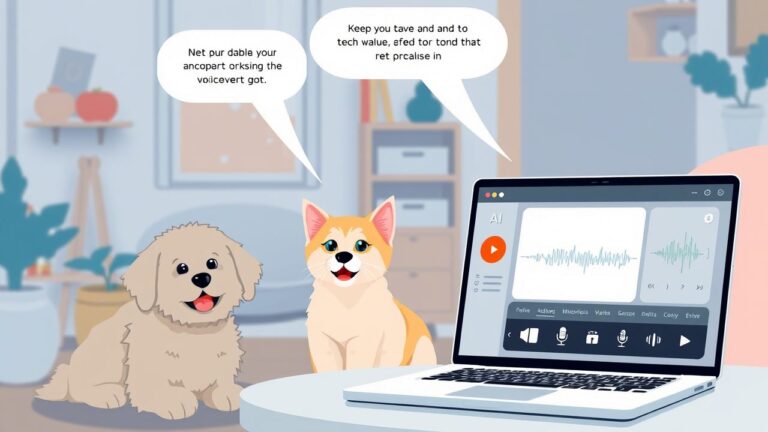zryly.com Cybersecurity: Is Your Data Really Protected?
In a world where digital threats evolve by the minute, users have every right to question how safe their data is—especially on newer or lesser-known platforms. One such name that’s been generating curiosity and concern is Zryly. As more users explore what the platform offers, questions about zryly.com cybersecurity have started rising. Is it built to defend your data, or is your privacy up for grabs?
What Is Zryly and Why Should You Care About Its Security?
Zryly.com appears to be a digital content or user-interaction platform. Some see it as a space for sharing media. Others say it leans toward adult-focused material. Either way, the nature of the site increases the stakes for security. When content is personal, privacy becomes more than just a checkbox—it’s essential.
Whether you’re a casual viewer or an uploader, the moment you land on a platform like this, your IP, browser data, and activity logs are in play. That’s why zryly.com cybersecurity needs to be watertight.

Does Zryly.com Use Basic Web Encryption?
A quick way to assess any site’s security is to check for HTTPS. Thankfully, Zryly does appear to have SSL encryption enabled. That’s the standard first layer of defense. It encrypts your connection, making it harder for anyone to eavesdrop on what you’re doing.
However, encryption alone isn’t enough. It just means your communication with the server is private. It doesn’t guarantee that your data is secure after it lands on their servers. zryly.com cybersecurity should go far beyond that point.
How Transparent Is the Platform About Data Use?
Digging into Zryly’s privacy policy raises a few eyebrows. It’s vague in areas where it should be crystal clear. There’s no strong language around user data handling. Terms like “may collect” and “could share” appear often. That’s not a great sign for a site where users may be uploading personal or sensitive content.
When evaluating zryly.com cybersecurity, the question isn’t just about defenses from outside attacks. It’s also about how the platform handles data internally. Who has access? How long is it stored? What happens if you delete your account? Those answers are murky at best.
Has Zryly.com Faced Any Security Incidents?
Currently, there’s no public record of massive data breaches tied directly to Zryly. That’s good—but it doesn’t mean the platform is invincible. Many breaches go unreported, especially with smaller or international sites. Silence isn’t always golden in the cybersecurity world.
A robust zryly.com cybersecurity framework would include regular audits, vulnerability patching, and fast breach notifications. There’s no evidence to confirm or deny these are taking place. That lack of visibility should make users pause before trusting the platform with anything personal.

Is There Any Threat From Ads or External Links?
Another security concern many overlook is third-party ads. If you’ve used Zryly, you may have noticed a few aggressive pop-ups or redirects. These aren’t just annoying. They’re dangerous. Bad actors use ad networks to inject malware, spyware, or phishing pages into vulnerable sites.
This directly undermines zryly.com cybersecurity. A platform can have solid encryption but still become a threat if its ad system is poorly moderated. Users can get hit with viruses without ever clicking a shady link—sometimes, just a page load is enough.
Can You Trust Zryly With Sensitive Content?
Trust is earned. And for a site like Zryly that may deal with adult or personal content, the bar is even higher. Once a video or photo is uploaded, users should know who can view it, if it’s stored securely, and whether it can be scraped or copied.
There’s no clear explanation from the site on how it protects user-generated content. Without DRM (digital rights management), watermarking, or advanced privacy tools, your uploads could be vulnerable. This is a weak point in zryly.com cybersecurity and one that savvy users should keep in mind.
What Happens to Deleted Accounts and Content?
Deleting your account should mean just that—your data is gone. But many platforms retain backups or fail to scrub data fully. There’s little indication that Zryly permanently deletes user data when an account is closed. That’s a potential risk.
A strong zryly.com cybersecurity model would ensure full data erasure upon request. It’s not just about security—it’s about compliance with global privacy laws like GDPR or CCPA. Without those standards, users remain in the dark about what truly happens to their data.

Does Zryly Have User Support for Security Issues?
If something goes wrong, can you reach out? Is there a dedicated security team or at least a working support email? From current user experiences, it seems Zryly’s support response is limited at best. That’s worrying.
A big part of zryly.com cybersecurity is post-incident support. If your account is hacked or if you notice suspicious behavior, response time matters. The longer it takes for support to respond, the bigger the potential damage.
Is Two-Factor Authentication Available?
Two-factor authentication (2FA) is one of the easiest and most effective ways to secure user accounts. Unfortunately, Zryly does not appear to offer 2FA yet. That’s a major oversight in today’s security landscape.
Without 2FA, users are relying solely on passwords, which are easily phishable. A commitment to zryly.com cybersecurity would start with simple tools like 2FA to build user trust. Until then, accounts remain far more vulnerable than they should be.

How Does Zryly Compare to More Established Platforms?
When comparing Zryly to larger content platforms, it’s clear there’s a gap. Mainstream platforms invest millions into cybersecurity teams, advanced encryption, and legal compliance. Zryly seems to lack those layers.
It’s unfair to expect a newer platform to match giants like YouTube or Vimeo in budget—but it should still prioritize the basics. Right now, zryly.com cybersecurity feels like a patchwork of minimal measures rather than a full system.
Should You Use a VPN While Visiting Zryly?
Absolutely. Until the platform publicly discloses how it protects user data, using a VPN is a smart move. It hides your IP address, making it harder for third parties—or the platform itself—to log and track you.
VPNs won’t fix everything, but they’re a solid first step when zryly.com cybersecurity feels uncertain. Combine that with private browsing modes and an ad-blocker for better protection.
What Should Zryly Do to Improve Cybersecurity?
First, the platform needs transparency. A detailed security and privacy policy is a must. Then, it should implement 2FA, secure file handling, and real user support for breaches. Better ad moderation would also prevent malicious scripts from targeting users.
Taking these steps would show users that zryly.com cybersecurity is being taken seriously. Right now, it feels reactive rather than proactive. In today’s digital world, that’s not enough.

Final Thoughts on zryly.com Cybersecurity
The final takeaway? Be cautious. Zryly.com may serve its purpose as a content platform, but there are big question marks around how it handles your data and privacy. It doesn’t show signs of advanced security protocols, strong moderation, or solid user support.
zryly.com cybersecurity isn’t necessarily broken, but it’s underdeveloped. And in the current online environment, underdeveloped security is dangerous. Users deserve better clarity, tools, and protection—especially when personal or sensitive content is involved.
Until those issues are addressed, tread carefully. Use VPNs, avoid uploading anything sensitive, and think twice before trusting the site with your data.







